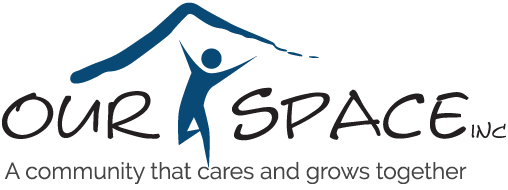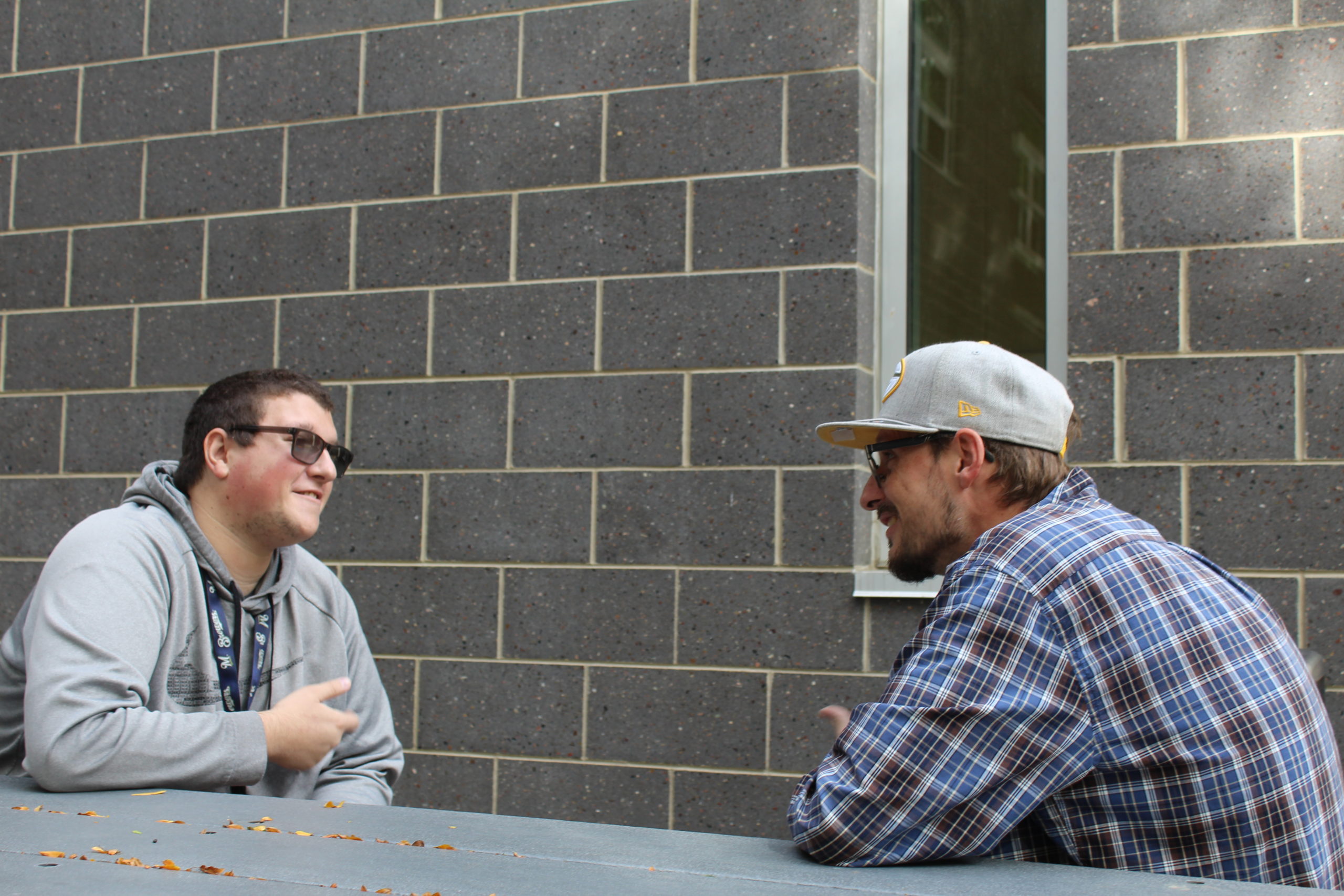
In part one of The Our Space Peer Support Model blog, we introduced the Our Space peer support model, utilizing individuals with lived experience walking alongside someone battling a similar issue. This week, we invite you to learn more about peer support, through stories recounting how it makes a difference in the lives of those served through this program.
Each Peer Support/Consumer relationship is as unique as the individuals they serve. The tie that binds them together is a desire to help each consumer through the recovery process and support them during the bumps in the road. As Direct Services Manager, Jennifer Buer, notes, “We continue to grow with them and evolve. As the consumer reaches one goal, we help them to define others, and move on to something else.”
Arthur and Willis’ Story
The relationship between Peer Support Specialist, Arthur Byas and his consumer, Willis, is one of friendship and understanding. “I guide Willis as he sets goals, and together we determine the things he wants to work on,” Byas notes “It might be ensuring he is taking care of himself physically or going to the doctor, or it might be just being there during a misstep.” For Willis, it is about having a trusted companion. “He is like the friend that I was looking for. I look forward to hearing from him every week, because he is going to ask me questions about what I am doing and hold me accountable.”
Both gentlemen get something special from their relationship. “I have seen him grow up and deal with overwhelming problems that could lead him to do something stupid. But he has gone through the challenges and works to deal with them in a responsible way,” Byas notes.
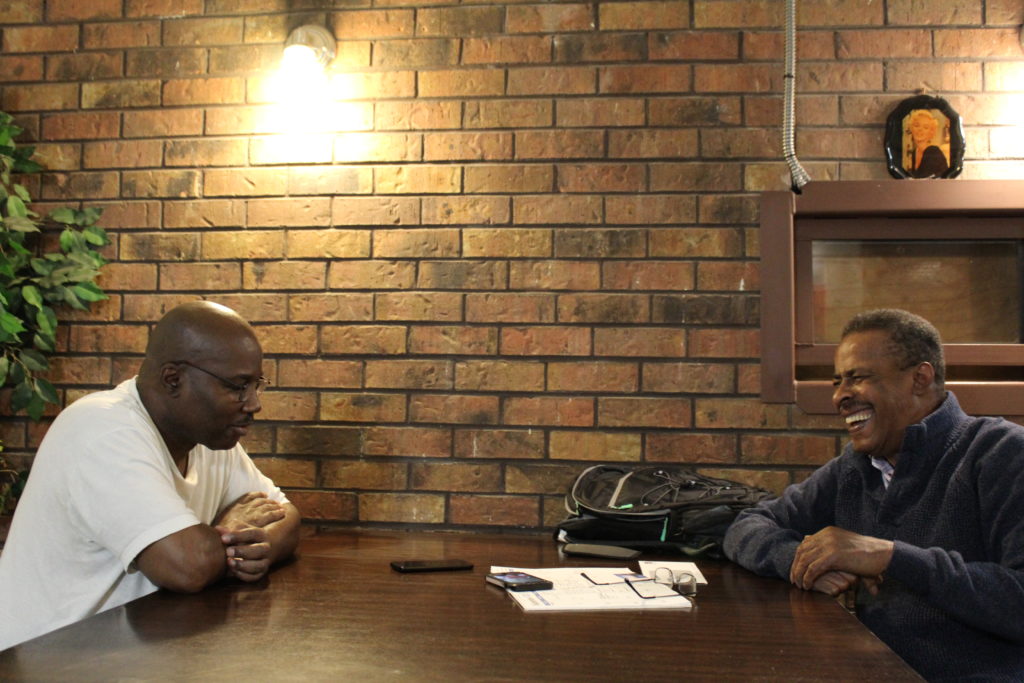
For Willis, he finds comfort in the friendship because Arthur has been in his place. “I get a lot from him because he’s been there. It’s not like I’m talking to someone who is giving me information they read from a book. He’s actually been in the same shoes I’ve been in.”
Michelle and Alicia’s Story
Michelle and Alicia’s Peer Support relationship began over two years ago and has encompassed everything from navigating the grocery store and budgeting, to setting health and other personal goals. Michelle has helped Alicia circumvent the world as responsible adult. “I was a teenager trapped in an adult body. Together we have worked through what it means to be an adult. I think Michelle really cares about me a lot.”
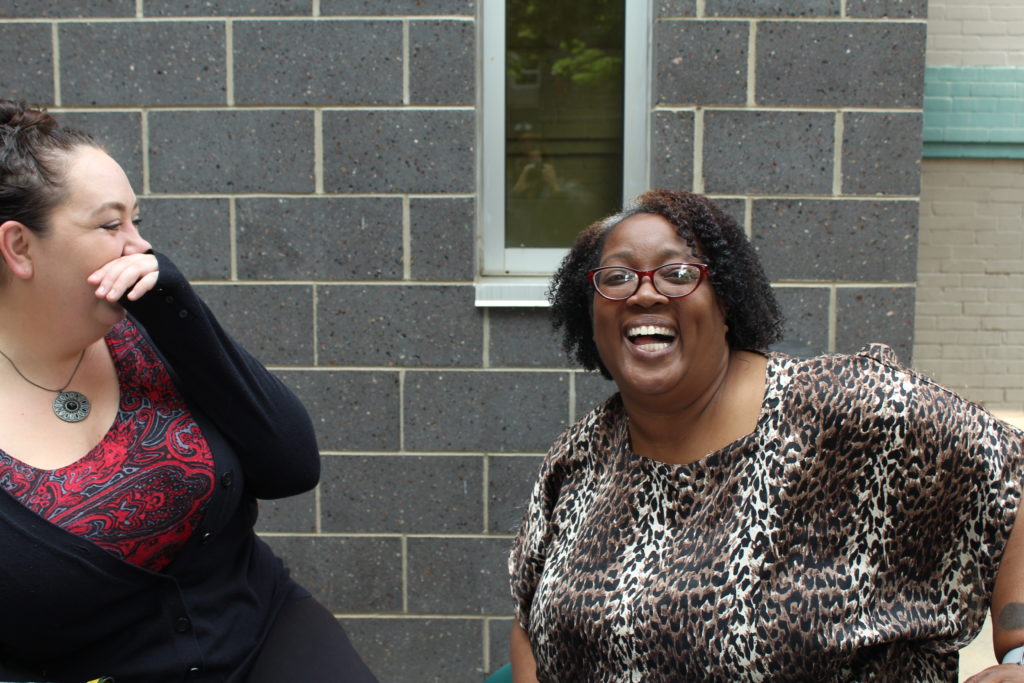
Michelle notes that she also benefits from the relationship, finding great joy in the steps forward Alicia takes. “I have seen her grow, and she strives to continue to grow. She puts on a brave face and has a huge heart. That is very special to me.”
One of the big hurdles the peer support relationship has taught Alicia is knowing when to ask for help. “Having someone do things for me is difficult. I have had to learn to ask for help. In the past, if I didn’t do it all by myself, it wouldn’t get done. Michelle works with me to ensure we are completing goals I have set for myself.”
Michelle’s training as a Peer Support Specialist has taught her to look for cues when she thinks Alicia needs additional assistance. “Sometimes, I have to pull out what she needs. She is so strong, but she can forget that it is alright to occasionally ask for a helping hand. I remind her that this is okay. I also want her to know how valuable she is.”
Jessica and Simone’s Story
Like Michelle and Alicia, Jessica and Simone have also been working together for over two years. Together they remember their first meeting with a bit of laughter. “I was really crabby because I was having a disagreement with my mom just before we met. It wasn’t anything major, just a typical mother daughter moment. I wasn’t sure I wanted a Peer Support Specialist to work with me. But after a bit of discussion, I agreed to give it a try.” This moment was a crucial lesson in trust, and it helped to create a framework for the relationship. “It was important that Simone understood that I was here for her. Not her parents, not anyone else,” Jessica notes.
Despite the awkward initial meeting, both women are glad the relationship commenced. “My relationship with my peer support is beautiful. I never knew that someone could understand me so well,” Simone says.
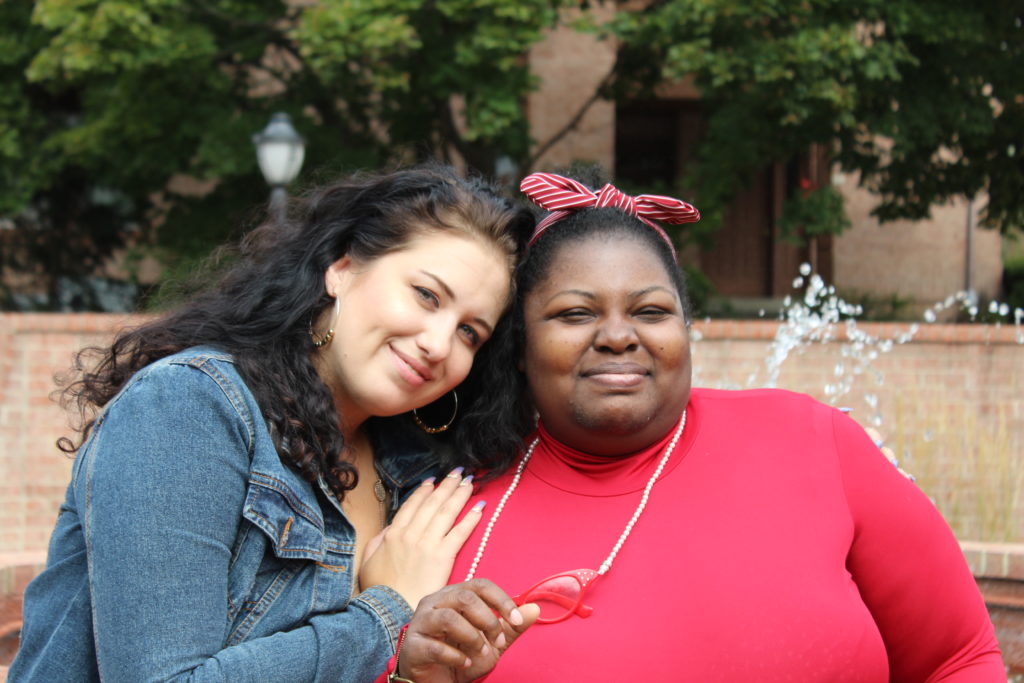
“I am so happy I took the chance to get to know her and didn’t miss out on the opportunity. This is the biggest blessing of my life.”
The relationship has also been a blessing for Jessica as she considers how Simone has changed her life and perspective. “It is really rewarding to share what I have learned and gained through my lived experience and watch someone else grow, and benefit from it.”
On-Going Training
In addition to utilizing their lived experience to guide the Peer/Consumer relationship, each Our Space Peer Support Specialist takes part in on-going training opportunities. Before they are able take on consumers, they attend a 70-hour Peer Employment Training conducted by Access to Independence or the Milwaukee County Behavioral Health Division. The training, which is approved by the State of Wisconsin, covers a wide variety of topics including recovery, meaning and purpose of work, developing self-esteem, cultural awareness, substance abuse, ethics and boundaries, recovery from trauma and developing resilience, dealing with intense situations and symptoms, conflict resolution, suicide prevention, communication and listening skills, and partnering with professionals.
After the Peer Support Specialist completes training with a grade 80% or better, they go through additional Our Space training, which might include site visits to the various services such as crisis respite houses, a mobile team, a crisis hotline, a walk-in clinic, the Psychiatric Crisis Service Admission Center, an observation unit, policies, procedures and daily routines of each service, as well as input on emergency detentions, charting, suicide, depression, and de-escalation techniques.
On-going training opportunities are also very important and help the Peer Support Specialist evolve in their practice. Because of this, each Peer is required to attend mandatory bi-monthly support/educational meetings, in addition to other trainings throughout the year. “The initial training is great, but it is just the starting point in the process. We consistently provide our Peer Support Specialists with additional resources as they become available, and point them towards other training opportunities,” Our Space Direct Services Manager, Jennifer Buer, indicates.
In the end, the Peer Support Specialist gets as much if not more out of their Peer/Consumer relationship. Buer, who also assists consumers as a Peer Support Specialist says, “I love helping the consumer learn to advocate for themselves, but even more so, this relationship helps me grow in my recovery.” The role helps Jennifer be the best possible form of herself. “I am reminded where I don’t want to go, and it helps me come to terms with my past. I have been given the chance to be on the other side of the story as a Peer Support Specialist. It is a role that I do not take for granted,” she concludes.
